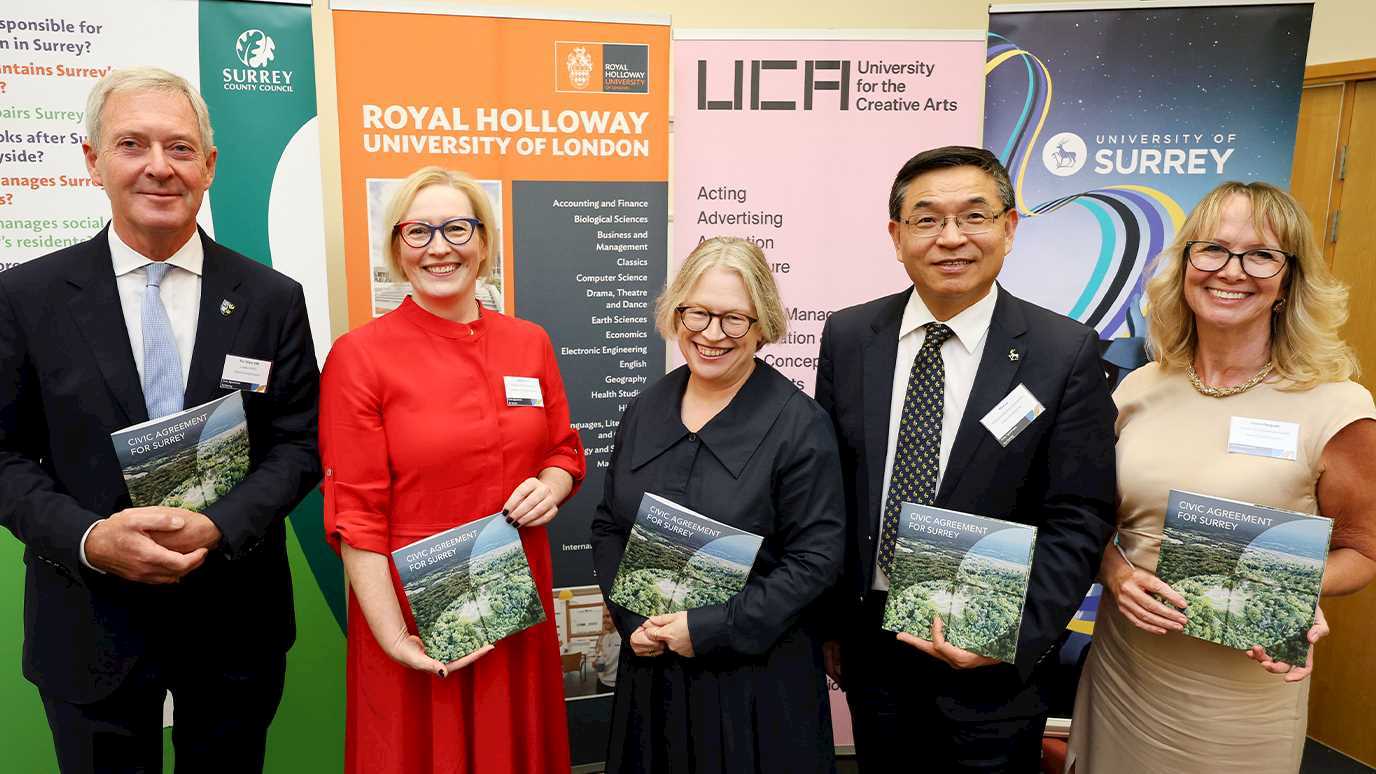Broadcaster ITV has credited research by a Royal Holloway academic for directly influencing its new audio-description policy. ITV’s policy sets out how the company will investigate and implement new guidance to govern how its audio-description (AD) service conveys race and other visible diversity cues to blind and visually impaired audiences.
The Describing Diversity report by Professor Hannah Thompson from the Department of Languages, Literatures and Cultures and VocalEyes is an exploration of the description of human characteristics and appearance within audio-description in theatres.
VocalEyes is dedicated to developing, sustaining and promoting audio-description of the arts. The Describing Diversity research project, in partnership with Royal Holloway, originated through the need to explore when and how we should describe the personal characteristics of the diverse range of characters that appear on stage. As well as the visible, physical markets of race, gender, impairment/disability, age and body shape.
ITV’s Audio-Description Manager, Jonathan Penny, recently wrote a blog stating that describing diversity is problematic for AD and especially for television. Descriptions are often delivered in the gaps between the characters’ dialogue, so from the start, they are limited by what space is available in a programme’s soundtrack. The audio-description policy from ITV was inspired by the Describing Diversity report as it examines a similar issue.
Professor Hannah Thompson from Royal Holloway, said: “The Describing Diversity report has already been much appreciated by audio describers in the UK and beyond. I am delighted that ITV has used it to inform its new inclusive audio description policy and I really hope that other major broadcasters will also take note. Providing audio introductions for TV and film content is a great way of giving blind and partially blind audiences a real sense of the diversity of characters and actors on screen.”
ITV’s AD Manager, Jonathan Penny, wrote in his blog post: “The process of decision-making has traditionally placed the highest priority on relevance to a programme’s plot – but where diversity is concerned, this can have unintended and negative consequences, including the unspoken assumption of default (e.g. Whiteness), issues of censorship or erasure, and the matter of representation both for those being described and for the AD audience. These issues were highlighted in the research by Royal Holloway and VocalEyes that explored diversity in theatre AD.
“Whilst there are some very clear overlaps between the two areas, it was clear that some of the issues were specific to TV and AD and that ITV would benefit from a dedicated study.”
You can read about the Describing Diversity report in full here.
























